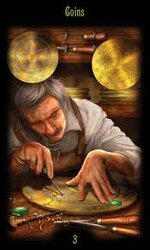WillHue
Colony Member
When I complete a day of writing, I think the pacing is too slow. It takes me 4 to 8 hours to write a modest scene, say 1000 to 2000 words.
Then I read it out loud in 5 minutes. I realize there's barely any meat on those bones. What felt like an 8 hour meal was in fact a 5 minute snack.
I go back and add more dimensions to the environment, depth to the characters, drive home the tension, in short, fatten up my thanksgiving turkey.
I repeated this many times before the bulb went on. Last month I told my wife and you would have thought I discovered electricity. Reading time, writing time... What say you pros?
Then I read it out loud in 5 minutes. I realize there's barely any meat on those bones. What felt like an 8 hour meal was in fact a 5 minute snack.
I go back and add more dimensions to the environment, depth to the characters, drive home the tension, in short, fatten up my thanksgiving turkey.
I repeated this many times before the bulb went on. Last month I told my wife and you would have thought I discovered electricity. Reading time, writing time... What say you pros?

